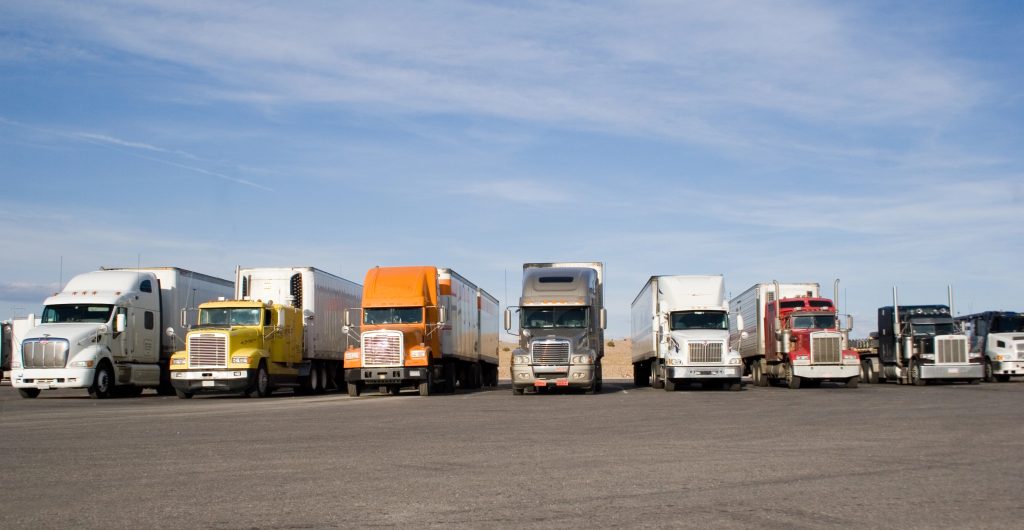Freight management system vs transportation management system
Managing logistics and transportation are essential aspects of any business that relies on the movement of goods. To streamline and optimize these operations, companies often turn to freight management systems and transportation management systems. Although the two terms may sound interchangeable, they actually have distinct features and functions that set them apart. In this article, we take a closer look at these systems, their key components, benefits, drawbacks, and how to choose the right one for your business.
Understanding Freight Management Systems
Freight management systems (FMS) are comprehensive software solutions designed to facilitate the planning, execution, and optimization of freight transportation. These systems are tailored to meet the unique needs of freight-based businesses, such as trucking companies, carriers, and logistics providers.
Key Features of Freight Management Systems
One of the key features of FMS is load planning, which allows users to efficiently distribute and schedule shipments, ensuring that they meet delivery deadlines while maximizing vehicle utilization. Additionally, FMS offer real-time tracking and visibility, providing live updates on the location and status of goods in transit. This feature allows businesses to proactively address any disruptions or delays that may occur.
Another crucial aspect of FMS is freight rate management. These systems enable businesses to accurately calculate shipping costs and compare rates from different carriers, facilitating cost optimization and ensuring competitive pricing for customers. FMS also automate documentation processes, reducing paperwork and streamlining customs clearance procedures.
Benefits of Using Freight Management Systems
The implementation of FMS brings numerous benefits to businesses. First and foremost, it enhances operational efficiency by automating manual tasks, reducing errors, and improving productivity. With real-time visibility and tracking, businesses can proactively address any issues, minimizing the risk of delays or lost shipments. Moreover, FMS provide businesses with valuable data and analytics, enabling them to make informed decisions based on accurate insight.
Furthermore, FMS streamline communication between shippers, carriers, and customers, improving collaboration, and fostering stronger relationships. By providing accurate delivery estimates and status updates, businesses can enhance customer satisfaction and loyalty. Additionally, FMS offer scalability, allowing businesses to adapt and expand their operations as needed.
Potential Drawbacks of Freight Management Systems
While FMS bring significant benefits, it’s important to consider potential drawbacks. The implementation and integration of these systems may require a considerable upfront cost, especially for small businesses. Training employees to effectively utilize the system and managing any technical issues that may arise can also pose challenges.
Another potential drawback is the reliance on technology for day-to-day operations. System downtime or glitches could disrupt the entire process, leading to delays or customer dissatisfaction. It is crucial for businesses to have backup plans and contingency measures in place to mitigate such risks.
Future Trends in Freight Management Systems
As technology continues to advance, the future of freight management systems holds exciting possibilities. One emerging trend is the integration of artificial intelligence (AI) and machine learning algorithms into FMS. These technologies can analyze vast amounts of data, identify patterns, and make predictive recommendations, further optimizing freight transportation processes.
Additionally, the rise of Internet of Things (IoT) devices presents new opportunities for FMS. By connecting vehicles, containers, and other assets to the internet, businesses can gather real-time data on factors such as temperature, humidity, and location. This data can be used to ensure the integrity of sensitive goods, improve route planning, and enhance overall supply chain visibility.
Furthermore, sustainability is becoming an increasingly important consideration in the freight industry. FMS can play a crucial role in supporting environmentally friendly practices by optimizing routes to minimize fuel consumption, reducing empty miles, and promoting the use of alternative fuels and transportation modes.
Overall, the future of freight management systems is promising, with continued advancements in technology and a focus on sustainability. By embracing these trends, businesses can stay ahead of the competition and achieve greater efficiency, cost savings, and customer satisfaction in their freight transportation operations.
Exploring Transportation Management Systems

In contrast to FMS, transportation management systems (TMS) offer a broader scope of functionalities that encompass the entire supply chain, including distribution, inventory management, and fleet optimization. TMS are widely utilized by businesses in various industries, including manufacturing, retail, and e-commerce.
Core Components of Transportation Management Systems
TMS provide businesses with end-to-end visibility and control over their supply chain. They comprise several core components, including transportation planning, execution, and settlement. Planning involves optimizing shipment routes, selecting carriers, and determining the most cost-effective options.
Execution involves managing the actual transportation process, including dispatching, tracking, and communicating with drivers. TMS facilitate seamless coordination between different stakeholders, ensuring smooth operations and timely deliveries. Settlement involves invoice auditing and payment processes, enabling businesses to accurately process and reconcile transportation expenses.
Advantages of Transportation Management Systems
Implementing TMS yields numerous advantages for businesses. These systems enable organizations to optimize their transportation operations, reducing costs and improving resource allocation. Through route optimization, TMS help minimize fuel consumption, vehicle idle time, and overall transportation expenses.
Moreover, TMS provide businesses with comprehensive visibility into their supply chain, allowing them to identify bottlenecks, optimize inventory management, and enhance overall efficiency. By centralizing data and automating processes, TMS streamline collaboration between suppliers, distributors, and other stakeholders, facilitating stronger partnerships and improved communication.
Limitations of Transportation Management Systems
While TMS offer immense benefits, certain limitations exist. The complexity of these systems may require significant time and resources to implement and customize according to specific business needs. Integration with existing systems and data migration can also pose challenges.
Furthermore, TMS rely on accurate and timely data input for optimal performance. Incorrect or incomplete information can result in suboptimal routing decisions or delays. It is essential for businesses to invest in data quality assurance and implement robust data management practices to mitigate these risks.
Comparing Freight and Transportation Management Systems
Now that we have explored the key features, benefits, and drawbacks of freight management systems and transportation management systems individually, let’s compare the two and understand their similarities and differences
Similarities Between the Two Systems
Both FMS and TMS aim to streamline logistics and transportation processes, enhance visibility and control, and improve overall operational efficiency. Both systems offer real-time tracking capabilities, allowing businesses to monitor the status and location of shipments.
Moreover, both systems can integrate with other software solutions, such as enterprise resource planning (ERP) systems and warehouse management systems (WMS), to create a seamless end-to-end supply chain management ecosystem.
Differences and Distinctive Characteristics
While FMS focus primarily on freight transportation and associated tasks, TMS encompass a broader range of functionalities, including transportation planning, execution, and settlement, as well as supply chain optimization.
Additionally, FMS are specifically tailored for freight-based businesses, while TMS find applications in various industries. This broader applicability of TMS often translates into a higher degree of complexity and customization requirements compared to FMS.
Choosing the Right System for Your Business

When it comes to selecting the appropriate logistics management system for your business, several factors need to be considered.
Factors to Consider When Selecting a System
Start by assessing your business needs and objectives. Determine the specific functionalities and features that are essential for your operations. Evaluate the scalability of the systems, as well as their ability to integrate with your existing infrastructure.
Consider the size of your business and the complexity of your operations. Smaller enterprises may benefit from the simplicity and cost-effectiveness of FMS, while larger organizations might require the advanced capabilities offered by TMS. Analyze your budget and weigh the upfront investment against the long-term benefits.
Impact on Business Operations and Efficiency
Keep in mind that the implementation of any new system will impact your business operations. Proper training and change management processes are crucial to ensure a smooth transition and maximize the effectiveness of the chosen system.
Consider consulting with industry experts or seeking recommendations from businesses similar to yours to gain insights into their experiences and best practices. Ultimately, identifying the right system that aligns with your business goals and specific requirements is key to reaping the full benefits of logistics management optimization.
Future Trends in Freight and Transportation Management Systems
As technology continues to advance, significant trends and innovations are shaping the future of both freight management systems and transportation management systems.
Technological Innovations and Their Influence
The adoption of Internet of Things (IoT) devices and sensors is revolutionizing supply chain management. Real-time data from smart devices enhances visibility and enables proactive decision-making. Automated vehicles and drones are also poised to play a significant role in improving delivery efficiency and reducing costs.
Additionally, the integration of artificial intelligence (AI) and machine learning algorithms empowers these systems to analyze vast amounts of data, predict trends, and optimize routing and resource allocation in real-time, leading to enhanced operational efficiency and cost savings.
Sustainability and Environmental Considerations in System Development
The focus on sustainable and environmentally conscious practices is gaining momentum within the logistics industry. Future developments in freight and transportation management systems aim to minimize carbon emissions, reduce fuel consumption, and optimize resource utilization.
Integrating sustainability metrics into these systems enables businesses to make informed decisions, such as selecting greener transportation options and minimizing the environmental impact of their operations. This shift towards sustainability not only benefits the planet but also enhances brand image and attracts eco-conscious customers.
In conclusion, freight management systems and transportation management systems are powerful tools that assist businesses in streamlining their logistics and transportation operations. Understanding their distinctive features, benefits, and limitations is crucial for making an informed choice that aligns with your business needs. By leveraging these systems’ capabilities, businesses can optimize their supply chain, reduce costs, enhance customer satisfaction, and remain competitive in an ever-evolving global market.
Ready to Transform Your Transportation Management?
Discover how Uniq TMS can streamline your logistics operations, enhance efficiency, and boost your bottom line. Click here to learn more and explore our innovative solutions designed to meet your unique transportation needs.